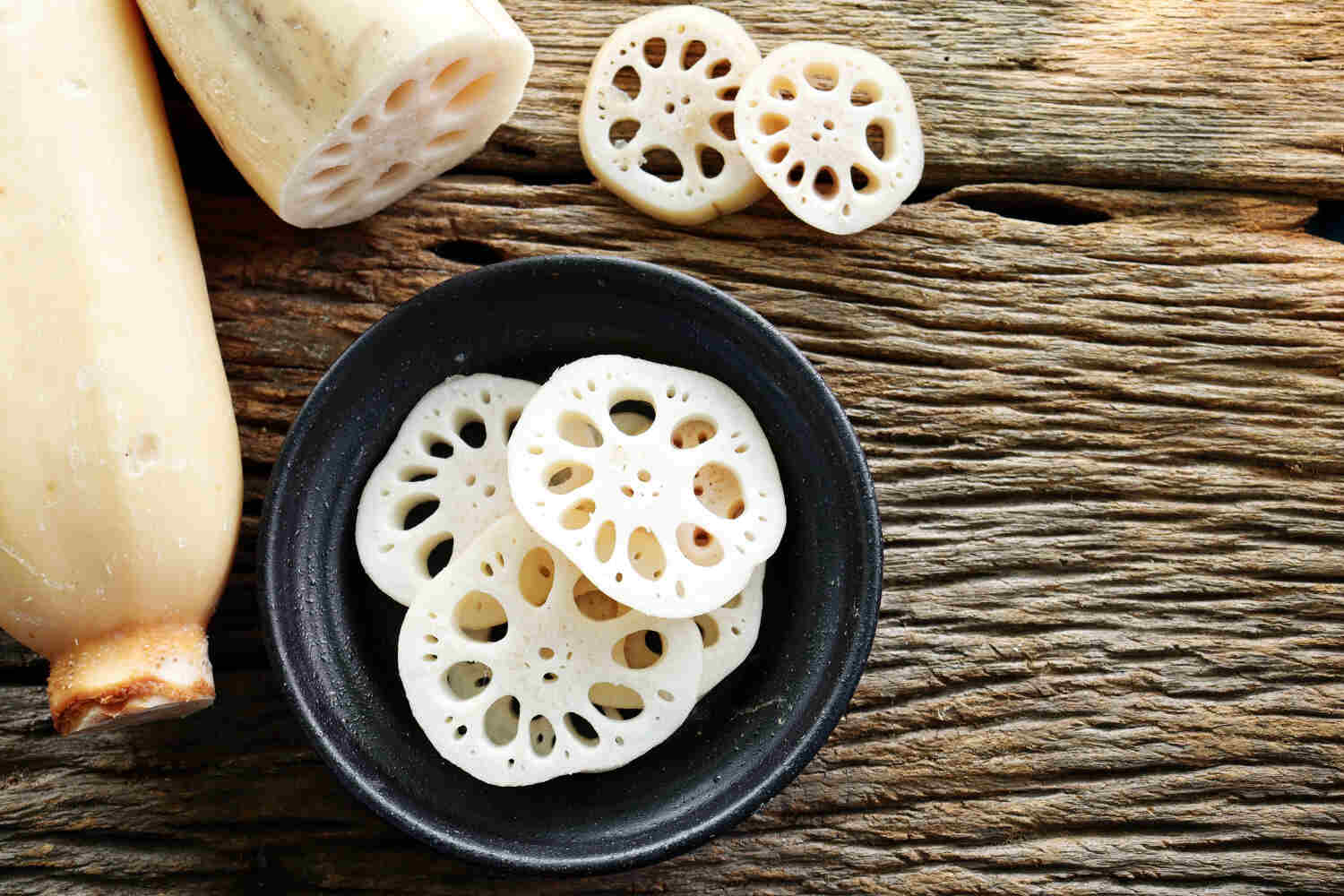
Manganese For Babies – Sources and Benefits
6 min readWritten by Gayathri Lakshminarayanan


As babies grow up, they need a lot of nutrients and minerals to support their body system and development. Manganese is one of the most essential minerals. This essential mineral is a micronutrient that the body needs in small quantities but is vital for the overall growth and development of the baby. Manganese for babies aids in bone growth and development, the production of fatty acids, and the nervous system. But it is important to remember that manganese must be provided in required amounts only.
The effects of excess manganese in babies could be adverse. So, what are the recommended levels of Manganese? Is your babies consuming the proper levels? Manganese is an essential trace mineral for adults and children. In this article, we shall discuss more what Manganese is, why babies require them, and the sources and effects of deficiency and excess. We shall also discuss the best foods rich in Manganese.
In This Article
- What is Manganese?
- Why Do Babies Need Manganese?
- Top Sources of Manganese For Babies
- How Much Manganese Do Babies Need?
- Effects of Manganese Deficiency in Babies
- How Can You Help Your Baby Get Enough Manganese?
- Top Manganese Rich Foods For Babies
- Nutritional Content of Manganese in Various Foods
- Top 5 Manganese Rich Food Recipes to Try For Your Baby
- FAQ’s
What is Manganese?
Manganese is an essential mineral and nutrient found in nuts, seeds, legumes, whole grains, leafy vegetables, and tea. It is required for the proper functioning of the human body in processing carbohydrates, cholesterol, and protein. It also helps in the formation and strengthening of bones.
According to a review article published by the National Library of Medicine, this mineral plays a crucial role in the overall growth and development of a baby, in particular, brain development. Manganese is also essential for metabolism of lipids, protein, amino acids, and carbohydrates.
Why Do Babies Need Manganese?
Babies grow daily, and a small portion of Manganese is stored in different body parts. Manganese helps the babies in the following areas.
- Developing the connecting tissues
- Forming strong bones
- Essential for sex Hormones
- Form a vital part of blood clotting factors
- Improve fat and carbohydrate metabolism
- Aid in calcium absorption
- Essential for the smooth function of the brain and nervous system.
Top Sources of Manganese For Babies

The following are the various sources of Manganese.
- Whole Grains
- Nuts
- Seeds
- Clams
- Oysters
- Mussels
- Soybeans
- Legumes
- Rice
- Leafy Vegetables
- Spices such as black pepper
- Drinking water also has Manganese to a certain extent.
How Much Manganese Do Babies Need?
There are no established Recommended Dietary Allowances (RDA) for Manganese. In the absence of RDA for any particular nutrient, adequate intake (AI) shall be used for reference. Based on the AI, the following are the levels of Manganese required in babies.
| Age | AI Levels(mcg/ mg) |
| Birth to 6 Months | 3 mcg |
| 7 to 12 Months | 600mcg |
| 1 to 3 Years | 1.2 mg |
| 4 to 8 Years | 1.5 mg |
| 9 to 13 Years (For Boys) | 1.9 mg |
| 9 to 18 Year (For Girls) | 1.6 mg |
| 14 to 18 Years | 2.2 mg |
Effects of Manganese Deficiency in Babies

Manganese is an important and necessary mineral for all kids. While the excess might lead to disturbances in neurological development, no one discusses the deficiency. The following are the effects or symptoms of Manganese deficiency in babies.
- Demineralization
- Poor Growth
- Skin rashes
- Hair depigmentation
- Poor bone growth, also known as Skeletal defects
- Abnormal Carbs and fat metabolism
How Can You Help Your Baby Get Enough Manganese?
Babies can be quite fussy about food, especially once they start solids. But around 6 months of age, the nutritional needs of babies increase as their growth curve and their energy requirements increase. The only way to ensure that your baby get enough manganese is by ensuring that you expose them to various age-appropriate food groups. Fruits, vegetables, nuts, pulses, cereals, and grains must all be introduced little by little.
Breastfeeding moms must ensure that they have a balanced diet so that their baby can get the required manganese through breast milk. Formula milk also has manganese, but you must check the label to ensure that the manganese levels are within permissible limits. Excess manganese may lead to manganese toxicity which can be harmful for babies.
[Read : Introducing Solid Foods for Kids]
Top Manganese Rich Foods For Babies
It is important to ensure that babies get adequate levels of Manganese. The following table enlists the top 10 best manganese rich foods for babies and the manganese levels.
| Food | Manganese Level Per 100 Grams |
| Cereal, Oat Meal | 3.4 mg |
| Oatmeal Cereal with Fruit, Dry, Instant | 2.8 mg |
| Cereal, Whole Wheat, with Apples, Dry | 2.52 mg |
| Crackers, Vegetable | 0.77 mg |
| Pasta with Vegetables (Dinner) | 0.39 mg |
| Cookies | 0.348 mg |
| Juice, Apple, with Calcium | 0.29 mg |
| Vegetable, Green Beans and Potatoes | 0.28 mg |
| Vegetables, Green Beans, Strained | 0.265 mg |
| Dinner, Turkey, Rice, and Vegetables | 0.23 mg |
| Cookie, Baby, Fruit | 0.22 mg |
| Vegetables, Peas, Strained | 0.218 mg |
| Dinner, Vegetables and Beef, Strained | 0.18 mg |
| Chicken Noodle, Strained (Dinner) | 0.16 mg |
| Apple-Cranberry Juice | 0.16 mg |
| Sweet Potatoes and Chicken, Strained(Dinner) | 0.153 mg |
| Vegetables Chicken, Strained(Dinner) | 0.15 mg |
| Peas, Dices, Toddler | 0.15 mg |
| Vegetables and Bacon, Strained (Dinner) | 0.14 mg |
| Vegetables and Ham, Strained (Dinner) | 0.14 mg |
Nutritional Content of Manganese in Various Foods
Several Foods contain Manganese, which is required for the human body. It’s always important to remember that the lower consumption, the higher absorption, and vice-versa. The dietary chart enlists levels of Manganese in several food items.
| Food | Milligrams (mG) Per Serving | Percentage of Daily Intake Value |
| Mussels, Blue, Cooked, 3 Ounces | 5.8 | 282 |
| Hazelnuts, Dry Roasted, 1 Ounce | 1.6 | 70 |
| Pecans, Dry Roasted, 1 Ounce | 1.1 | 48 |
| Brown Rice, Medium Grain, Cooked, ½ Cup | 1.1 | 48 |
| Oysters, Pacific, Cooked, 3 Ounces | 1 | 43 |
| Clams, Cooked, 3 Ounces | 0.9 | 39 |
| Chickpeas, Cooked, ½ Cup | 0.9 | 39 |
| Spinach, Boiled, ½ Cup | 0.8 | 35 |
| Pineapple, Raw, Chunks, ½ Cup | 0.8 | 35 |
| Soybeans, Boiled, ½ Cup | 0.7 | 30 |
| Bread, Whole Wheat, 1 Slice | 0.7 | 30 |
| Oatmeal, Cooked, ½ Cup | 0.7 | 30 |
| Peanuts, Oil-Roasted, 1 Ounce | 0.5 | 22 |
| Lentils, Cooked, ½ Cup | 0.5 | 22 |
| Potato, Flesh and Skin, baked, 1 Medium | 0.3 | 13 |
| While Rice, Long Grain, Cooked, ½ Cup | 0.3 | 13 |
| Kidney Beans, Canned, Drained, Rinsed, ½ Cup | 0.3 | 13 |
| Squash, Acorn, Cooked, Cubed, ½ Cup | 0.3 | 13 |
| Blueberries, Raw, ½ Cup | 0.3 | 13 |
| Sesame Seeds, Dried, 1 Tablespoon | 0.2 | 9 |
| Kale, Raw, 1 Cup | 0.2 | 9 |
| Black Pepper (1 Gram) | 0.2 | 9 |
| Aspharagus, Boiled, ½ Cup | 0.1 | 4 |
| Apple, Raw, with Skin, 1 Medium | 0.1 | 4 |
| Lettuce, Romaine, Raw, Shredded, 1 Cup | 0.1 | 4 |
Top 5 Manganese Rich Food Recipes to Try For Your Baby

The following are some of the Manganese-rich food recipes that you can introduce to your children. If you have an infant and breastfeeding them, try to include them in your diet to nourish your little one with adequate Manganese.
1. Hazelnut Butter Sandwiches
Hazelnut is very healthy and rich in not only Manganese but also Vitamin E and B. They help in improving metabolism and immunity. You can spread this butter over bread slices and offer to your baby once they are ready for finger foods.
2. Oats-Moong Dal Tikki
You can mix cooked moong dal with oats, form them into a tikki shape and cook over a pan or bake in the oven. This is an excellent evening snack for your baby or toddler who is eating finger foods.
[Read : Yellow Moong Dal For Babies]
3. Mini Jowar, Apple, and Walnut Pancake
Jowar, Apple, Jaggery, and Walnuts are rich in iron and some amount of Manganese. Your kids will love this pancake loaded with flavor and nutrients.
4. Chia Seeds And Pear Lassi
Try out the lassi mixed with pear and chia seeds. Chia seeds are very nutritious and can be easily implemented into our diet.
5. Kabuli Channa Chaat
Chickpeas are a good source of Manganese. You can par boil them and garnish them with coriander, vegetables, and lemon to have a healthy snack.
FAQ’s
1. Is Manganese Safe For Babies?
Manganese is safe for babies as long as it is given within recommended limits. Excessive magnesium intake can lead to magnesium poisoning.
2. Why Do Babies Need Manganese?
Manganese is essential for proper formation of bones and connective tissue. In addition, manganese plays a vital role in many other important body functions.
Read Also: Calcium For Babies – Sources And Benefits

Gayathri Lakshminarayanan,CA, B.Com
Gayathri’s passion for writing had its foundation at the very early stages of her life when she was on her college editorial board and also won several awards for writing events and book review competitions. She combines her corporate experience with her writing skills and her experience as a homemaker makes her an empathetic contributor in the parenting domain . Her shift from full-time accounting professional to a homemaker gave her career a new direction.Read more.
Responses (0)
Want curated content sharply tailored for your exact stage of parenting?
Related articles

Tips and Ideas For Selecting Baby’s First Birthday Dress For Boys

Bedtime Fading Method of Sleep Training Your Baby – Know All About it

Mongolian Blue Spots in Babies – Causes, Symptoms & Treatment

Lotus Root For Babies – Is is Safe, When to Introduce and Top Benefits

Wheels on the Bus Rhyme For Babies

Liver Diseases in Babies – Causes, Symptoms and Treatment
Sponsored content
Discover great local businesses around you for your kids.
Get regular updates, great recommendations and other right stuff at the right time.





